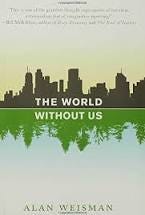Early in 2020, just as the pandemic was starting to seep into our consciousness, my doctor prescribed a large daily dose of Vitamin D, saying it might boost my immune response to the coronavirus. As I was recovering from a series of illnesses at the time she reasoned that my immune system might be compromised.
A year later, whether that strategy was effective remained unverified in the medical literature; the studies were inconclusive. But I, for one, am pretty glad that she put me on that regimen.
There does seem to be a correlation with Vitamin D deficiency and many serious illnesses, possibly including Covid-19. It is estimated that 40 percent of the U.S. population doesn't get enough Vitamin D, which in natural form comes from sunlight.
But correlation is not causation, so more studies will be necessary before we'll know anything for sure. I'm only a sample of one, and last time I checked, I'm still here.
***
In an interview with The Guardian, the longtime editor of The New Yorker, David Remnick says "there is no vaccine for climate change." It's a catchy phrase, something I might have said myself on occasion, given the hundreds of thousands of words I churn out annually, but I'm happy to defer to him on this one.
He's right about that, of course, but in a more hopeful mood, there have been indications from time to time that the planet may have the innate ability to heal itself from some of the inputs our species has inflicted upon it.
In his wonderful book, "The World Without Us" (2007), Alan Weisman imagined what would happen should a sudden event, perhaps a virus, wipe out all of us humans but leave the rest of the planet's life forms intact.
As I recall, many of our domesticated pets wouldn't fare too well, but our house cats would be one exception. They'd do just fine. Vegetation would relatively quickly claim all of our cities and monuments. Traces of us would remain, of course, not the least of which would be the layer of topsoil we inevitably end up as anyway.
But it is more than a useful intellectual exercise to imagine the earth with no people on it if only to remind us that for now, we are here and we still may have a chance to save both our species and the planet.
And also to make our ephemeral lives matter in ways big or small.
(An earlier version of this essay appeared three years ago in April 2021.)
HEADLINES:
UK arms sales to Israel should end, say legal experts (BBC)
Biden rebukes Israel over aid workers, but his Gaza policy is unchanged (WP)
Has Israel’s moment of reckoning finally arrived? (The Hill)
US braces for retaliation after attack on Iran consulate — even as it says it wasn’t involved (AP)
Why rural white Americans’ resentment is a threat to democracy (The Conversation)
California is building fewer homes. The state could get even more expensive (LAT)
The British Are Coming for Your White-Collar Job (WSJ)
What I Saw Working at The National Enquirer During Donald Trump’s Rise (NYT)
Trump's 'Christian Day of Visibility' tantrum is also a warning (MSNBC)
Judge Merchan Abruptly Labels Trump Case ‘Federal Insurrection Matter’ (TNR)
How Steve Bannon guided the MAGA movement’s rebound from Jan. 6 (WP)
Author Isabel Allende challenges anti-immigrant rhetoric, book bans and going 'backward' on women's rights (NBC)
Ukraine’s Drainpipe Drones Open A New Era Of Long-Range Strikes (Forbes)
The Great Democratic Success Story That Wasn’t (Atlantic)
The vast majority of recent carbon dioxide emissions can be traced to a group of just 57 producers. (Reuters)
How brown rats conquered North American cities (AP)
Kansas newspaper publisher sues over police raid, claiming retaliation (WP)
Big tech companies form new consortium to allay fears of AI job takeovers (TechCrunch)
OpenAI’s GPT Store Is Triggering Copyright Complaints (Wired)
Apple Explores Home Robotics as Potential ‘Next Big Thing’ After Car Fizzles (Bloomberg)
Existential Researchers Teach Rat To Run Forever Through Exitless Maze (The Onion)

No comments:
Post a Comment